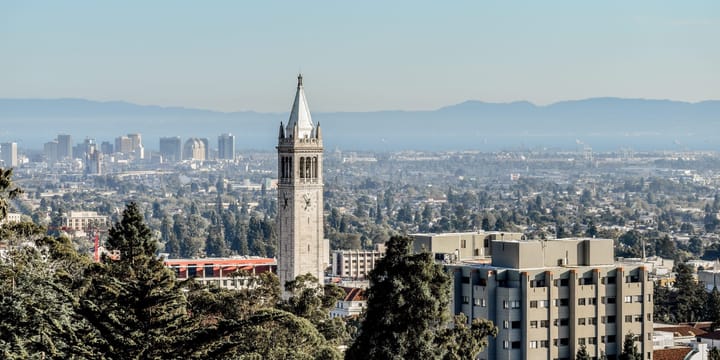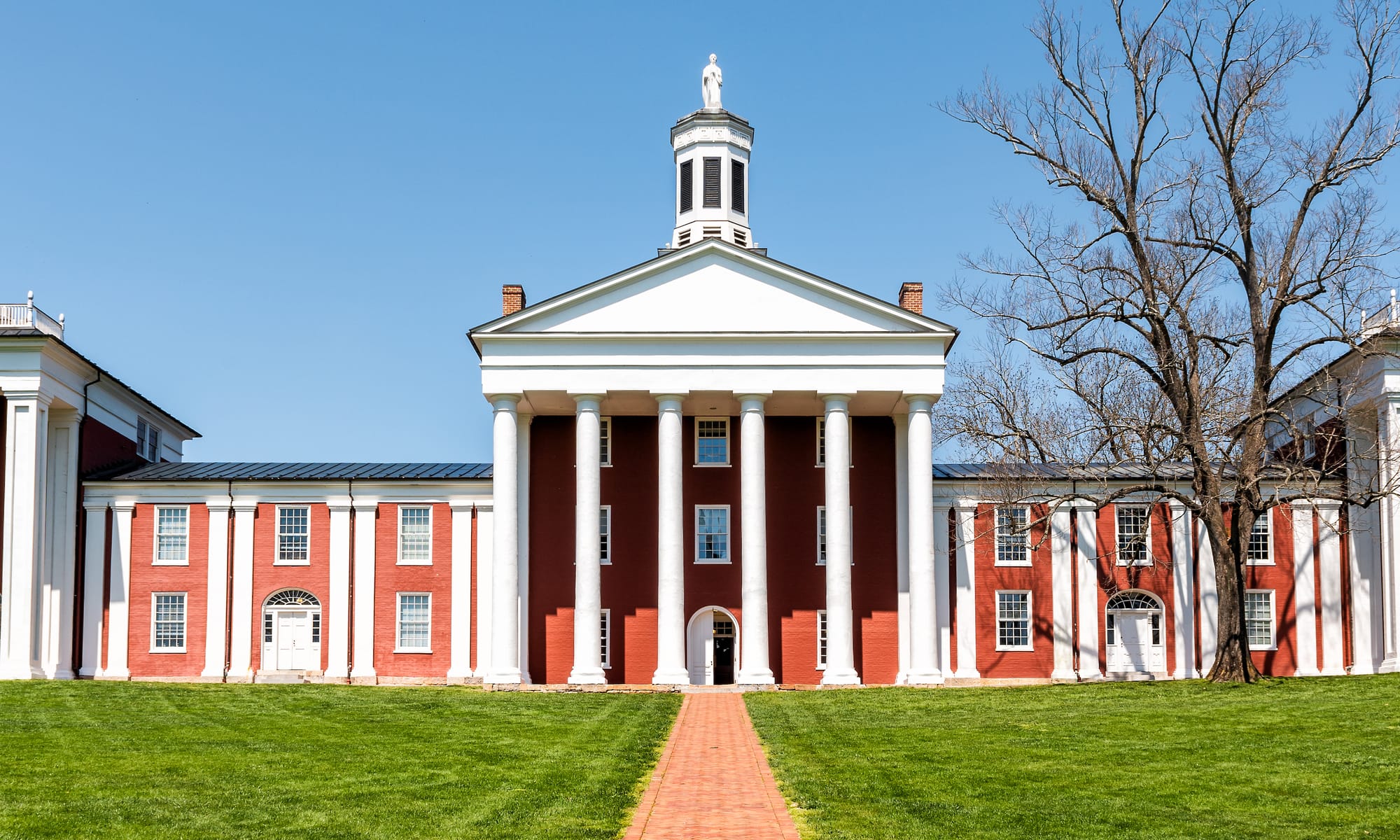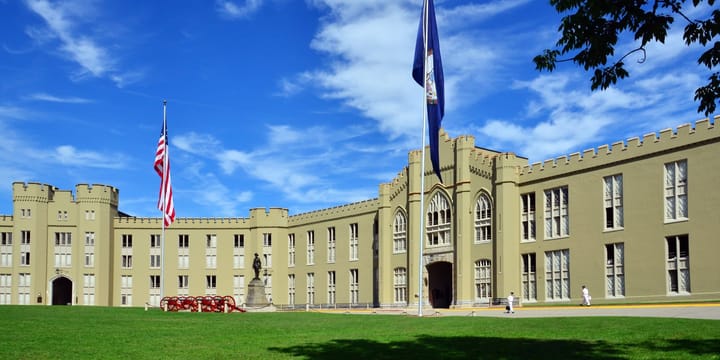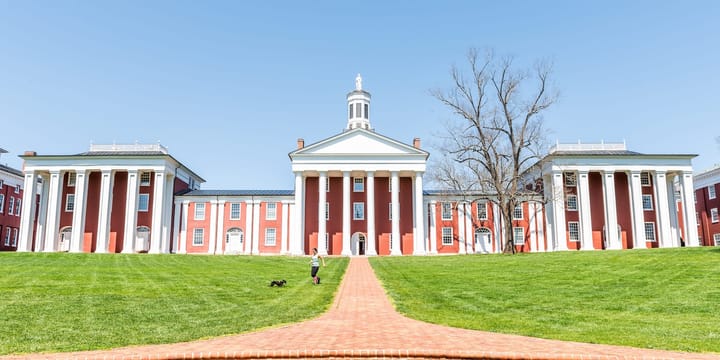UC Berkeley turns over 160 names to federal government
The University of California, Berkeley, is among the 10 universities that a Trump administration task force on antisemitism has identified for particular attention.

The University of California, Berkeley has disclosed the names of approximately 160 students, faculty, and staff members to the Trump administration. This falls into a federal investigation into alleged antisemitism on campus, but it hasa sparked concerns about academic freedom and government overreach.
The disclosure details
The university shared the names with the U.S. Department of Education's Office for Civil Rights. They identified individuals who have a "potential connection to reports of alleged antisemitism," according to The Chronicle of Higher Education. Berkeley spokesperson Janet Gilmore told The Chronicle that the people mentioned in the documents were either reporters of alleged antisemitism, "the subject of reports, or individuals impacted by the matter."
Berkeley made the disclosure "in compliance with its legal obligations to cooperate" with the federal investigation. The decision came from the University of California system president's office, The Chronicle reported.
An email from the campus's chief legal counsel, David M. Robinson, notified those affected on September 4. The email informed them that the university had shared their information with the government.
Faculty concerns about academic freedom
The disclosure has drawn sharp criticism from prominent faculty members who see it as an attack on academic freedom. The list inbcluded Ussama Makdisi, a Berkeley history professor and leading scholar of modern Arab history.
She expressed alarm about the lack of transparency in the process in an interview with NPR for morning edition:
The idea is obviously, clearly a chilling of speech and a chilling of academic freedom because we have no idea what we have allegedly been accused of. We have no idea how to even go about clearing our name."
She framed the investigation within a broader context of suppressing Palestinian advocacy.
"What's happening across American institutions and across the United States more generally is a crackdown, an unprecedented crackdown, on academic freedom, on the ability of students to express themselves in support of various very basic and fundamental issues, such as freedom, such as equality, such as justice for Palestinians in particular."
Historical parallels
When asked by NPR about historical precedents, Makdisi drew comparisons to "the McCarthyist period" and "the Salem Witch Trials," though he noted the current situation occurs against the backdrop of the conflict in Gaza.
Philosopher Judith Butler, another Berkeley faculty member whose name was reportedly shared, also wrote in The Chronicle that the university's decision echoed "a practice from the McCarthy era" and lacked due process. She continued:
"We were not allowed to know the substance of the allegation nor were we provided with a review process where our own accounts could be considered."
The broader federal campaign
Berkeley officials defended their compliance with the federal investigation. In a statement to NPR, spokesperson Janet Gilmore confirmed that he Office for Civil Rights at the Department of Education provided the records of complaints about "alleged incidents of antisemitism and discrimination." Nothing seems to have come directly from Berkeley.
The university system's president's office emphasized their legal obligations to The Chronicle. Spokesperson Rachel Zaentz wrote that "Our campuses routinely receive document requests in connection with government audits, compliance reviews, or investigations. UC is committed to protecting the privacy of our students, faculty, and staff to the greatest extent possible, while fulfilling its legal obligations."
The disclosure comes as the federal government continues its campaign to investigate elite universities, launched after campus protests over Israel's war in Gaza. The administration has opened similar investigations into dozens of campuses and demanded that colleges turn over personal information about students .
The stakes are significant for the UC system. According to The Chronicle, the Trump administration is seeking a $1-billion payment from UCLA to resolve a probe there, and federal-funding losses could soon extend across the system, which currently receives more than $17 billion in federal funding across 10 campuses.
Future concerns and surveillance fears
The investigation remains ongoing, with Robinson warning in his letter that Berkeley "may be subject to additional production obligations,. Faculty and students have also expressed concerns about potential surveillance and restrictions on their activities.
In The Chronicle, Butler captured the anxiety felt by many in the Berkeley community:
"Will those of us on the list be branded by the government as 'terrorist sympathizers'? Will our travel be restricted? Will our email be surveilled?"
Veena Dubal, general counsel for the American Association of University Professors, told The Chronicle that Berkeley's decision was "improper" and "has had a chilling effect on campus."
Speaking to NPR about the implications for higher education, Makdisi warned of a crisis moment: "We are in a crisis moment right now" regarding the free exchange of ideas on campus.
The situation at Berkeley reflects broader tensions between federal oversight and academic freedom as universities navigate investigations into campus climate and antisemitism allegations amid ongoing debates about the Israeli-Palestinian conflict.
How we maintain academic freedoms at those very institutions meant to serve as bulwarks agains such overreach remains to be seen.
Non in cautus futuri.
Sources: Article in The Chronicle for Higher Education by Megan Tahinis. NPR Interview of Ussama Makdisi by Leila Fadel.



